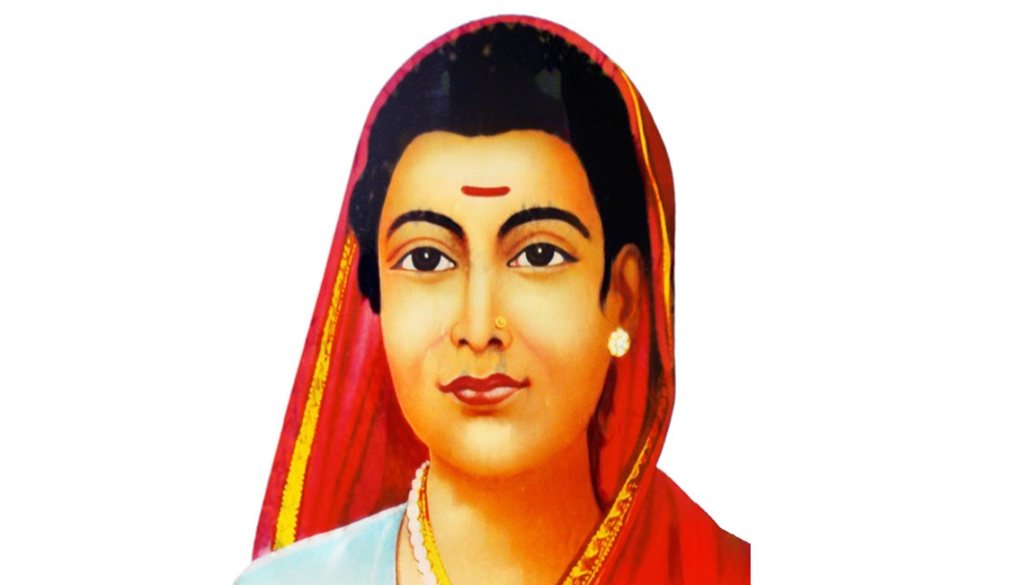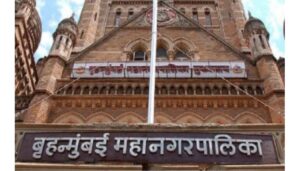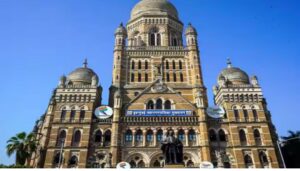Women’s Day Special: Mrs Margaret Shaw Mitchell, who trained Savitribai Phule as a teacher

Camil Parkhe
Pune, 8th March 2024: Jotiba Phule, in his deposition to the Sir William Hunter Education Commission in 1882, has said, “My experience in educational matters is principally confined to Poona and the surrounding villages. About 25 years ago, the missionaries had established a female school at Poona, but no indigenous school for girls existed at the time. I, therefore, was induced, about the year 1854 [this could be a spelling error], to establish such a school, and in which I and my wife worked together for many years. ‘’
Mahatma Jotiba Phule, hailed as the father of social transformation of India, has thus said that it was the work of Christian missionaries which inspired him to open a school for girls. Prior to opening this school, he had visited the female schools established by Miss Cynthia Farrar at Ahmednagar.
Phule has recalled the conversation he had with Miss Farrar of the American Marathi Mission. Dhananjay Keer, an important biographer of Phule, has dwelt in details on Phule’s visit to the American Marthi Mission’s school in Ahmednagar.
In his deposition to the Hunter Commission, Phule further says:
“After some time I placed this school under the management of a committee of educated natives. Under their auspices two more schools were opened in different parts of the town. A year after the institution of the female schools, I also established an indigenous mixed school for the lower classes, especially the Mahars and Mangs. Two more schools for these classes were subsequently added, Sir Erskine Perry, the president of the late Educational Board, and Mr. Lumsdain, the then Secretary to Government, visited the female schools and were much pleased with the movement set on foot, and presented me with a pair of shawls. I continued to work in them for nearly 9 to 10 years, but owing to circumstances, which it is needless here to detail, I seceded from the work. These female schools still exist, having been made over by the committee to the Educational Department under the management of Mrs. Mitchell.‘’
A question may arise. Who is this Mrs. Mitchell?
The names of James Mitchell and Mrs. Mitchell appear in several contexts in biographies of both Jotiba and his wife, Savitribai Phule. However not much light has been thrown on this Scottish missionary couple and their exact contributions in the shaping the lives of Jotiba and Savitribai Phule.
In a recently released movie, ‘Satyashodhak’, some scenes have been shot at the very beginning of this movie on `James Saheb’ , Reverend James Mitchell in whose Scottish missionary school Jotiba and his companions had studied in 1840s.
Explaining his credentials to the Hunter Commission on submission of his views on educational system, in the same paragraph of the deposition, Phule continues:
“A school for the lower classes, Mahars and Mangs, also exists at the present day, but not in a satisfactory condition. I have also been a teacher for some years in a mission female boarding school‘’
It is significant to note that Jotiba Phule had been a student in the missionary school ran by James Mitchell and later in 1850s, also functioned as a teacher in the same school.
The association of the missionary couple James Mitchell and Mrs. Mitchell with the social reformer couple Jotiba and Savitribai Phule thus runs for a long time.
Like young Jotiba, Savitribai also studied in the female teachers training school established in Pune by Mrs. Margaret Shaw Mitchell. This has been recorded in various documents related to the lives of the Phule couple. Savitribai Phule is rightly hailed as the first Indian trained woman teacher.
James Mitchell was one of the first Scottish missionaries who arrived in India in 1823 and started missionary work and established schools at Bankot and Harnai in Konkan. All these Scottish missionaries were married and their wives aided their husbands in their work. The missionary wives established female schools and girls boarding schools.
The wife of James Mitchell too was thus busy in the missionary and educational work. Mrs. Mitchell who had for some time maintained female schools at Bankot however died at Dapoli in Konkan on January 17, 1832.
By this time, John Stevenson, another Scottish missionary, had established a mission base at Pune. Stevenson in 1833 gave up his missionary rank to join as a chaplain of the East India Company and James Mitchell came to Pune to replace him as the head of the Pune Scottish Mission. The Scottish mission centres in Konkan were then permanently closed.
James Mitchell in 1840 wrote to The Scottish Ladies Association for Female Education in India, seeking help of some women to carry out female education in India. At that time, the Scottish Mission in Pune had five girls schools. Women teachers were needed to teach in these schools. In response to his appeal, the Scottish Ladies Association deputed a young woman, Miss Margaret Shaw, to Pune in 1841.
A year later, James Mitchell married Margaret Shaw. This Margaret Shaw Mitchell, simply referred to as `Mrs. Mitchell’ in various documentations and books, later played an important role in female education in India. She continued her work in India with dedication for the next two decades.
In a letter published in the Missionary Record for 1842, James Mitchell has said: “Mrs. Mitchell has lately begun visiting in the families of some of the girls and others. A few days ago she had rather an interesting interview with the females of one of the chief pundits in Poonah, a man of the highest rank, both as Sirdar (nobleman) and a Brahman. They were so taken with the interview that the pundit called yesterday to ask her to repeat the visit’’.
Records reveal that on 28th January 1845, Miss Joanna Shaw arrived from Europe, as assistant to her sister, Mrs. Mitchell, who was superintendent of the female schools.
Phule conducted a public examination of the girls schools at the Poona College grounds on Saturday, 12 February 1852.
The function was attended by a large number of invited dignitaries, natives as well as Europeans. The newspaper records of the event mention names of James Mitchel and Mrs. Mitchell among those present.
Both Jotiba and Savitribai were students of James Mitchell and Mrs. Margaret Shaw Mitchell and the missionary couple may have derived great satisfaction on their students performing extraordinary service in the field of female education.
Savitribai Phule was among the first women trained by Mrs. Mitchell in her teachers training school. Savitribai later won an acclaim as efficient head-mistress of the girls schools established by the Phule couple in Pune .
During their prolonged dedicated work in Pune, Mitchell couple had visited Scotland and Europe only for short durations three times, mostly for health reasons. During these brief visits, James Mitchell was replaced by Mumbai-based Scottish Missionary John Murray Mitchell, who also functioned for a brief period as the principal (Visitor) of the Pune-based Sanskrit College, later Poona College and now Deccan College.
Like James Mitchell, John Murray Mitchell too had a very close association with Jotiba Phule.
In his autobiography, “In Western India: Recollections of My Early Missionary Life’, John Murray Mitchell has referred to a tragic incident, involving a low caste Mahar boy, who was sent by Phule to the missionary’s school. After the Brahmin students of Murray Mitchell’s school vehemently objected to the entry of an untouchable student in the school, the Mahar boy had never turned up for learning at the school.
Various books dealing on the history of the Scottish Mission in western India mention the work of James Mitchell and Mrs. Margaret Shaw Mitchell. Mrs. Mitchell who ran girls schools and also a boarding for girls in Pune was superintendent of these schools for two decades till 1863. Thereafter this post was taken up by Mrs. Gardner, wife of a Scottish missionary James Wardrop Gardner who had arrived in Pune to assist James Mitchell in his mission work.
(Camil Parkhe is a senior journalist based in Pune.)






